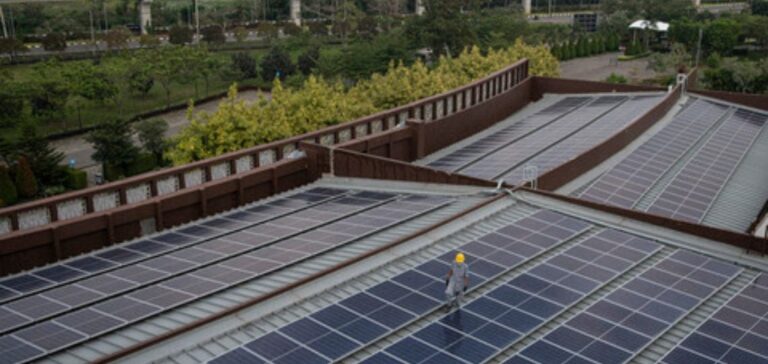The Indonesian photovoltaic industry receives a strategic boost with the arrival on the scene of DDI, a major player in fund management for the energy sector.
By teaming up with 11 specialized Chinese companies, DDI is implementing an innovative financial strategy aimed at strengthening local industrial capacities.
This localization effort is crucial to meet the growing demand for renewable energy in Indonesia, while consolidating the internal value chain.
The partnership with PT Kawasan Industri Terpadu Batang (PT KITB) marks an important step in this initiative.
By targeting key segments such as the production of photovoltaic cells and modules, and the integration of critical equipment, DDI and its partners are creating a robust ecosystem designed to support the ramp-up of the photovoltaic industry in Indonesia.
This strategic collaboration, based on direct financing and industrial expertise, aims to improve the efficiency of the local production chain.
Industrial chain optimization
DDI’s approach is distinguished by its complete integration of financial and industrial resources.
By injecting capital directly into key links in the photovoltaic chain, DDI accelerates not only the modernization of infrastructures, but also the adoption of advanced technologies.
This financial strategy reduces the risks associated with investment in new technologies, while maximizing industrial returns. With its expanding market, Indonesia is better prepared to meet the energy challenges of the future. This financial model, which combines targeted investment with rigorous resource management, could serve as a benchmark for other emerging markets.
By focusing on increased localization, DDI ensures better cost control, while at the same time guaranteeing an increase in the skills of local players.
Value chain integration, backed by solid Chinese expertise, positions Indonesia as a key player in the global photovoltaic landscape.
Global outlook and strategic expansion
DDI is not limiting its ambitions to Indonesia.
Building on this experience, the company intends to extend its model to other international markets, with the aim of strengthening its presence in the global photovoltaic sector.
By adopting a global perspective, DDI explores new partnership opportunities and continues to innovate in its financing and industrial management methods.
DDI’s role in this initiative in Indonesia is a perfect illustration of how a strategic financial approach, combined with cutting-edge industrial expertise, can transform an emerging market into a photovoltaic power generation hub.
This approach could have a significant impact on the competitiveness of the global photovoltaic industry, offering a replicable model for other regions.






















